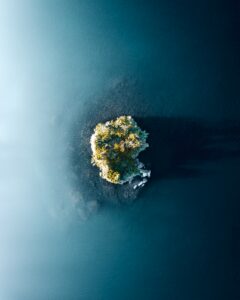 Call for papers The Northern Mediterranean Archipelago: Environmental Histories of Adriatic, Ionian, Tyrrhenian and Ligurian Islands
Call for papers The Northern Mediterranean Archipelago: Environmental Histories of Adriatic, Ionian, Tyrrhenian and Ligurian Islands
Special Issue of the journal Economic- and Ecohistory 2023
The focus of this Special Issue is the Northern Mediterranean, with a particular interest in its islands. In this instance, Northern Mediterranean is defined as the area covering the Adriatic, Ionian, Tyrrhenian, and Ligurian seas – a space bound together by multiple ties. Alongside having a similar climate, these ties include the movements, migrations and circulation of people, plants and animals within the area, as well as the shared transnational history of trade, agriculture and animal husbandry – all of which have transformed and re-transformed its landscapes for millennia. Among these shared transforming forces is tourism
Building on this wealth of entanglements, the envisaged volume shall examine the islands of the Northern Mediterranean as one archipelago, while also delving into the variety and diversity of these islands, approaching each as a dynamic entity on its own terms.
Recent scholarship has challenged the view of islands as mere backdrops of history by presenting them, in contrast, as its crucial and dynamic shapers. This issue aims to contribute to this discourse, further challenging the notion of islands as detached, isolated, or ahistorical. Through a collection of environmental histories of the Northern Mediterranean archipelago in particular, this volume aims to discuss its islands as the locales of state-making, trade, communication, circulation and movement of humans and the other-than-human through time.
Within the broader theme of entanglements, transformations and movements in the context of islands of the Adriatic, Ionian, Tyrrhenian, and Ligurian seas, we welcome contributions which include, but are not limited to, the following sub-themes:
The (dis)connected islands:
Circulation of humans, information, goods, plants and animals among the islands in various contexts – from trade and tourism to conflict, incarceration, exile and refuge.
Micro and macro migrations:
Movements: within the islands inland to coast and vice versa.
Voyages: to and from the islands in various contexts.
Leaving the island life: the emptying of islands’ villages and towns.
Homes of the Peculiar:
Endemic species, stories, customs and cultures.
Idiosyncrasies pertaining to the island life in the Northern Mediterranean.
Dynamics of (Is)landscapes:
Transformations and changes of island’s materialities and identities from swamps and arid lands to national parks, from fortresses, military garrisons or prison camp sites, to tourist hotspots, etc.
Changes through time: from sweeping anthropogenic projects to longue durée transformations.
Please send your abstract of no more than 300 words, accompanied with a brief biographical note, by 15 June 2022.
The tentative deadline for submission of final manuscripts is February 1, 2023.
Papers will be peer-reviewed by two anonymous reviewers.
Please submit your papers to the e-mail addresses of the editors.
Editors of this special issue:
Dr. Hrvoje Petrić (University of Zagreb, hpetric@ffzg.hr),
Dr. Milica Prokić (University of Glasgow, milica.s.prokic@gmail.com)
The journal Economic- and Ecohistory has been published annually by members of the European Society for Environmental History in Zagreb (Society for Croatian Economic and Environmental History) since 2005. Papers published in all issues, including the most recent one, are accessible in printed and in open-access form (https://hrcak.srce.hr/ekonomska-i-ekohistorija?lang=en). The last seven special issues deal with Historical Climatology in the Context of Human and Environmental History of the South-Eastern Europe, the Carpathian Basin and the Eastern Alps (2020), forest history (2018), environmental history of the Drava River (2017, 2019), environmental history of Istria (2016), history and sustainability (2015), and history of environmental movements and development of environmental thought (2014).
Image: Photo by Matheo JBT on Unsplash